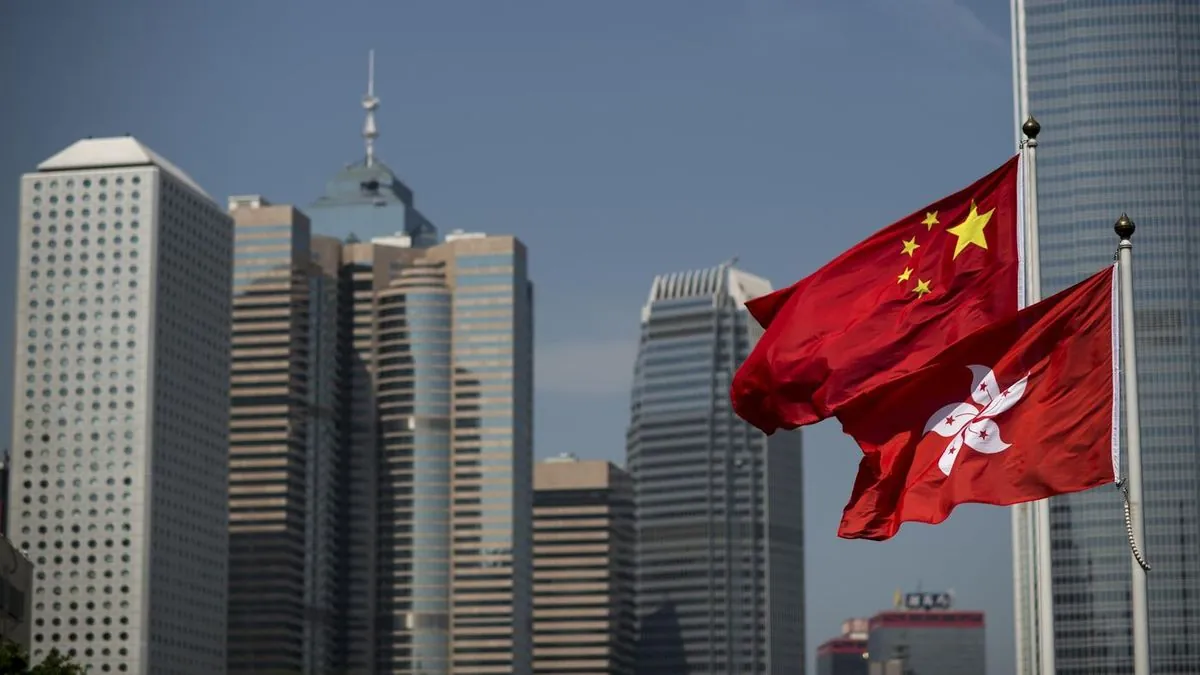The U.S. House of Representatives has approved legislation that could potentially lead to the closure of Hong Kong's economic and trade offices in the United States, escalating tensions between the two regions. The bipartisan Hong Kong Economic and Trade Office (HKETO) Certification Act passed with an overwhelming majority of 413 to 3 on September 11, 2023.
This legislative move comes amidst growing concerns over Hong Kong's autonomy from China. The bill empowers the U.S. president to revoke privileges and immunities of Hong Kong's trade offices in Washington D.C., New York, and San Francisco if they are found to lack a "high degree of autonomy" from China. If implemented, these offices would be required to cease operations within 180 days of notification to Congress.
The Hong Kong government has strongly condemned the U.S. House's action, describing it as a "fact-twisting attack" that "violates international law and the basic norms governing international relations." Officials in Hong Kong argue that the bill interferes with their internal affairs and misrepresents the city's human rights situation.
This development occurs against the backdrop of significant political changes in Hong Kong. In 2020, Beijing imposed a national security law on the city following months of pro-democracy protests in 2019. The law, which criminalizes acts of secession, subversion, terrorism, and collusion with foreign forces, has been a point of contention internationally. More recently, in March 2024, Hong Kong passed an additional national security law, known as Article 23.
The implementation of these laws has led to the arrest of over 300 individuals, according to the Security Bureau. Notable figures affected include Jimmy Lai, founder of the pro-democracy newspaper Apple Daily, and Joshua Wong, a prominent activist who gained recognition during the 2014 Umbrella Movement protests.
U.S. Representative Chris Smith, chair of the Congressional-Executive Commission on China, views the HKETO Certification Act as "a necessary next step in tangibly demonstrating our solidarity with the persecuted citizens of Hong Kong." This sentiment is echoed by Anna Kwok, Executive Director of the Hong Kong Democracy Council, who believes the bill serves as a response to hold the Hong Kong government accountable for alleged human rights abuses.
It's worth noting that Hong Kong's status as a global financial hub has been affected by these political changes. The city, which was returned to China in 1997 under the "one country, two systems" principle, was guaranteed autonomy for 50 years after the handover. This principle is set to expire in 2047, adding uncertainty to Hong Kong's future.
The HKETO Certification Act now moves to the U.S. Senate for consideration. If passed, it will be sent to President Joe Biden for final approval. This legislative action underscores the complex relationship between Hong Kong, China, and the international community, particularly in matters of trade, diplomacy, and human rights.
"The US House of Representatives' fact-twisting attack on Hong Kong is politically driven, violates international law and the basic norms governing international relations, and grossly interferes in the affairs of Hong Kong"
As tensions continue to simmer, the international community watches closely to see how this situation will unfold and what implications it may have for global trade relations and diplomatic ties between the United States, Hong Kong, and China.
